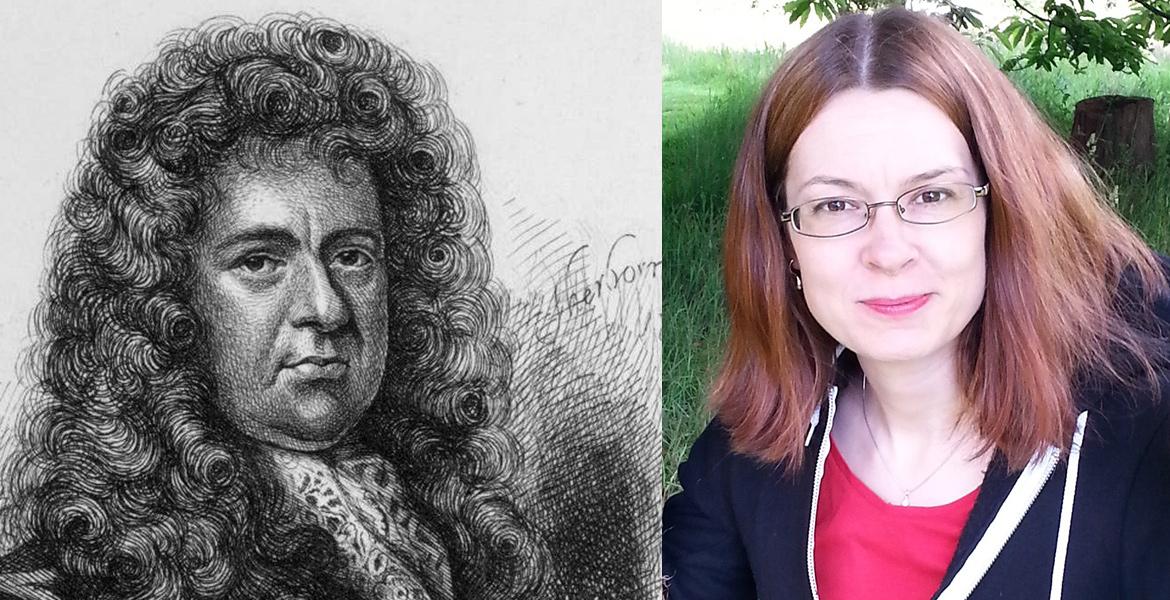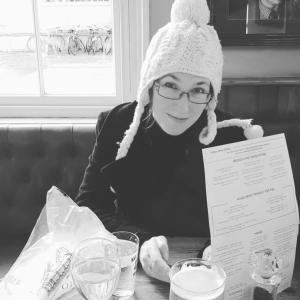Kate Loveman: In Conversation
Dr Kate Loveman is an Associate Professor in English Literature at the University of Leicester. She specialises in the late seventeenth and early eighteenth centuries, with a particular interest in reading habits, collecting, and sociability. She is also an expert on the famous Restoration diarist, Samuel Pepys, publishing extensively on him and producing a new edition of his diary in 2018. We caught up with her at the Chalke Valley History Festival, where she was delivering a talk on the RestorationThe restoration of the monarchy and the return to a pre-civil war form of government in 1660, following the collapse of the Protectorate..
Your talk today at Chalke Valley History Festival is on the Restoration and Charles II; what are the main points you’re hoping to get across?
People at the time thought Charles II's reign was impressively eventful, and today people know about events like the Great Plague and the Great Fire. So, some of what I'm talking about today is those big events. I'm going to talk a bit about Charles's style of rule and how he did some double-dealing with the French. I’ll be talking about how diarists of the time - Samuel Pepys, John Evelyn - were recording events and I'll be discussing how the party-political system of today can in some ways be traced back to the Restoration. It's where we get the word 'ToryBritish right-wing political faction based on the values of traditionalism and conservatism. Modern Conservatives are sometimes still referred to as Tories.British right-wing political faction based on the values of traditionalism and conservatism. Modern Conservatives are sometimes still referred to as Tories.', for example. So, I'm trying to cover politics, I'm trying to cover disasters, and a bit of everyday life as well: twenty-five years of history in fifty minutes.
A lot of people refer to Charles II as a party king. Would you say that's accurate or would you say there's more to him?
‘The king who brought back partying’! To some extent it is absolutely accurate: Charles was known for spending lavishly on his mistresses, for countenancing bad behaviour among his courtiers. But to a large extent the idea of him as a ‘party king’ is royalist propagandaBiased and misleading information used to promote a political cause or point of view.Biased and misleading information used to promote a political cause or point of view.. That is how the people writing under him and his regime were presenting him: a fun-loving, merry-making king, in contrast to the dour, austere puritans before. So, when we think about Charles, we have to remember that to some extent it’s propaganda, but it also has a kernel of truth in it.
You’ve mentioned the beginnings of the modern political system, the Whigs and the Tories; do you think that Restoration Britain was more like pre-Civil Wars Britain, or do you think it was actually becoming recognisably much more modern?
I think a lot of people under Charles II would have liked to turn back the clock to life under Charles I, where there was less obvious division. There are things about the Restoration that we often talk about as being modern, like the start of the Royal Society and experimental science, and much of London's fabric today is in brick and stone because they had the Great Fire. It's interesting to me as a period because it often seems quite modern, but then you encounter something that is definitely strange. For example, I was reading about Richard Allestree’s itemising the many types of drunkards in this world. This is a religious writer and he lists categories we would recognise today: people who are drinking for good fellowship, people who are drinking to pass the time, people who are drinking to fight off sorrows. These kinds of categories seem very, very familiar. But at the same time, there were divisive customs around drinking that can seem strange, such as fierce political and religious disputes over drinking healths. Most puritans (including royalist ones) did not approve of drinking healths, but at the other end of the spectrum, to show their dedication to the king, royalists would take off their hats, kneel, down a cup of wine and then down another cup of wine. So, it's these kind of extremes and ways of thinking - not that we’re oblivious to party politics and religious divisions today – that are often quite a challenge for understanding the seventeenth century.
Do you think that history can teach us about today; are there lessons from, say, the Restoration that can be applied to now?
I've been thinking about this a bit because when Charles II came to the throne, it was the result of popular politics. At that point people had lost faith in their parliament, they had seen existing systems fail, and they had to find a way through, to find a way to compromise. I don’t think these historical parallels are going to teach us how to solve current crises, but it is certainly always worth remembering that people have faced profound, constitutional, problems and found ways through them.
Do you think that the seventeenth century is becoming more relevant?
I think it has certainly been cropping up in the news a bit because we've been asked to think about the role of parliament and parliamentary traditions, some of which have come from the seventeenth century or were famously challenged during it. It would be nice to see the seventeenth and eighteenth centuries taught more to people. I think they are inherently interesting periods and there are lots of eye-catching elements to them. They genuinely fascinate me, partly because we've often got the lives of ordinary people in much more detail than we have for earlier periods
You mentioned earlier about Samuel Pepys, and of course you're a specialist on him; you’ve released a new version of his diary?
I edited his diary, which is in shorthand and has previously been produced in a very, very large edition of eleven volumes. I have produced a newly edited, condensed version of it with footnotes and a new introduction.
How did you find going through his shorthand?
I learned to read his shorthand partly because I had to check the accuracy of parts of the existing transcript, which was fun! One of the things about shorthand is that it's spelt phonetically, so you get a sense of Pepys’s voice in a way that sometimes you don't when you're reading longhand, normal English, and it has the thrill of code breaking.
And do you think it is essential to work with manuscriptsBooks, documents, or piece of musics written by hand rather than typed or printed. Later, pieces of work that have not yet been published.Books, documents, or piece of musics written by hand rather than typed or printed. Later, pieces of work that have not yet been published. ?
I had the advantage of working with an existing and very trustworthy edition, but I think it's really important for editors to be able to access manuscripts and check details, as I was doing in this case, because very often we don't have printed editions that are reliable. I do quite a lot of work with other kinds of manuscripts as well: when I was editing the diary, I was going into the archives and looking for records of marriages to write footnotes about people who had previously been missed. It's now much easier to do that kind of research than it would have been in the 1960s and ‘70s when the diary was being edited by Robert Latham and William Matthews.
Can you tell me a bit more about Samuel Pepys? What was it that attracted you to him as a subject to study?
Pepys kept this incredibly detailed diary between 1660 and 1669, which was a period when he went from being a relatively low-level government clerk to being a powerful figure in the administration of the Navy as well as a courtier. By the end of the diary he had the ear of the heir to the throne, the duke of York. So, in terms of its social trajectory it's very impressive. Pepys is also very good at writing about other people, or at least he gives us enough detail to be able to track other people and to think about their lives. Although somebody who wrote over one million words about himself is clearly self-centred, he's self-centred in a way that involves a great deal of curiosity; he talks about people from across the social scale and that is what fascinates me.
Are there any particular juicy bits from his diaries that are safe to be repeated?
It's a bit of an art talking about Pepys while being polite! Some of the stuff in his diary is very disturbing and that's one of the interesting things: we have to deal with somebody who is breaking the law in his own time. He talks about his sex life, he talks about reading pornography, and that's information we often don't have from other sources from the time.
One of my favourite bits in the diary that is fit for conversation is when Pepys, in November of one year, takes up almost an entire entry describing how he and his wife lay in bed terrified at the prospect of burglars breaking in because they'd heard a noise: they'd heard knocking and he records (to paraphrase) how 'we thought it was burglars and then we thought it might be a ghost. And we thought it might be our cat.' Eventually it transpires that it's just next door cleaning the chimney. But the fact that somebody can spend several hundred words detailing their terror and their slight humiliation at the end is one of the appealing things about Pepys: who else would think to do that kind of thing?
Were his diaries ever meant for publication?
It's one of the things that has puzzled historians and that anybody working on the diary has to think about. There are clearly bits where he's writing set pieces - when he writes about the Great Fire or about Charles II's coronationThe ceremony of crowning a king or queen (and their consort).The ceremony of crowning a king or queen (and their consort)., he knows he's describing a big historical event. But at the same time he will, for example in the coronation, mention that he nipped out for a wee halfway through, which is not something that someone who is intending to publish does. I don’t think that he intended his diary to be published when he was writing it, but certainly by the end of his life he would have been aware that the publication of at least parts of it was a real possibility given the circumstances in which he left it. In his will the diary was included in his library, which he gave to his old college, and his library is full of historical documentation, meaning the diary was going to be found by scholars. So, I think Pepys intended for bits of his diary to be published.
You come at history from a slightly different perspective because your background is English literature. Do you find that that background helps with understanding history?
I think it probably helps with writing it. I started to work in history because I was interested in political literature and that led me to acquire the skills of a historian, which I've now been doing for quite a while. But it does mean that, for example, when I look at a bit of text I'm probably thinking in a 'literary historian' way: I think about how people use metaphors, how they're trying to persuade. It also means that sometimes I go off the beaten track to find things out, and that way I discover strange things that maybe I wouldn't have found otherwise.
What's your next project?
I'm going to do some more work on Samuel Pepys’s papers. I'm interested in the women in the diary about whom it's often been quite difficult to find information, but the information is out there and I'm finding it. I'm also working on the seventeenth-century history of chocolate.
He didn't get on with his wife is that correct?
They had serious marital disagreements. Yet they were an effective partnership: they navigated their way and climbed the social scale together. They helped each other. But he and his wife fell out quite a bit and Pepys had affairs, at least one of which Elizabeth found out about. She retaliated by telling him how people had made passes at her and she had virtuously refused them. She was a very smart woman: she knew how to press Pepys's buttons and she was very good at picking up different kinds of skills.
It's probably an obvious answer, but if you could have any dinner guest, who would it be and why?
I'm not sure it would be Samuel Pepys because I'm a woman and I'm not sure he'd have wanted to have much of a conversation with me, unless I had a really good singing voice! But I'd really like to talk to Elizabeth Pepys and get her side of the story, so she would be my guest!
And if you could go to any point in history in a safety bubble where would you go and why?
Well, because I've been reading about it a lot recently, I'd like to go and see the coronation of Charles II. Not the actual crowning bit but the parade through the city of London, because it was full of Restoration special effects: they had an artificial camel and I'd like to go and see what it actually looked like!
- Log in to post comments






